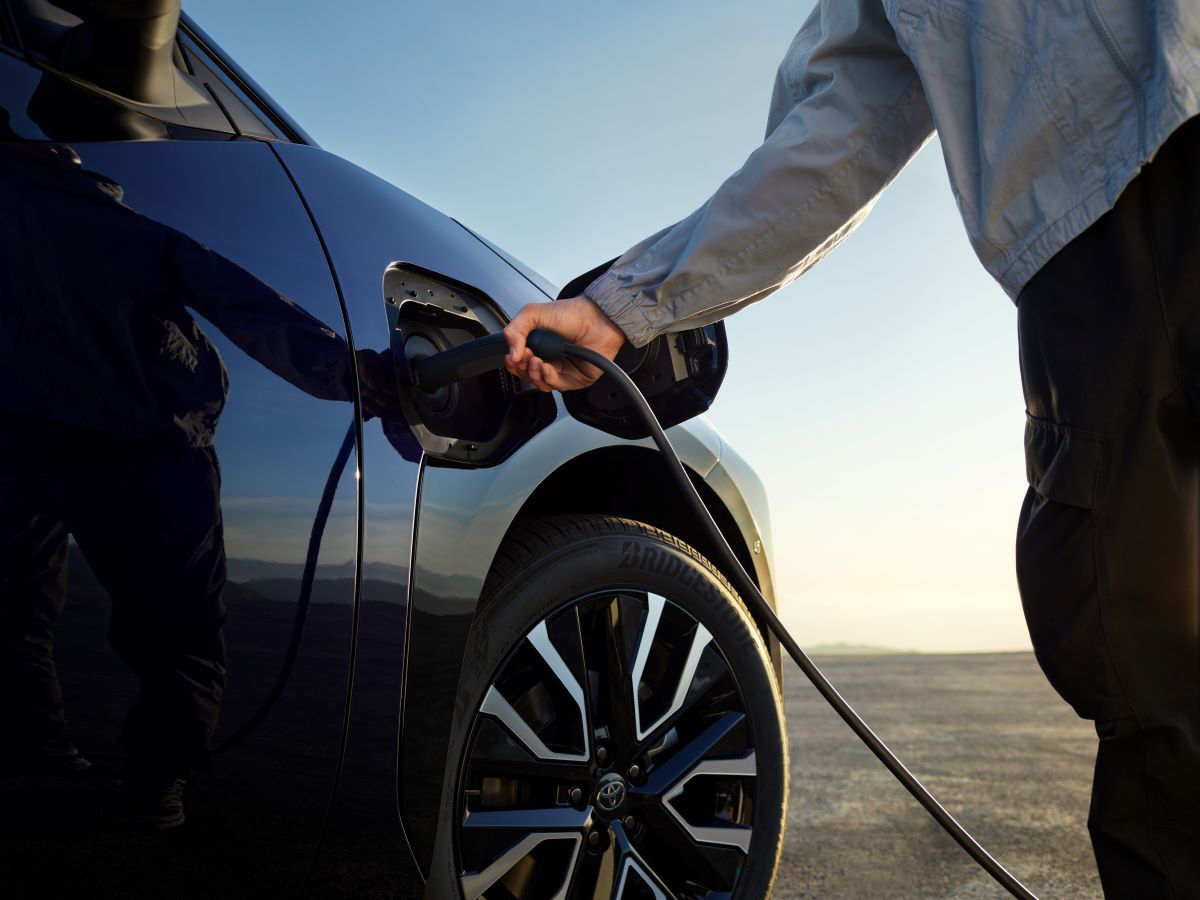Select a province & language
Entrance to this website assumes you have read and agree to these Legal Terms and Conditions and the Privacy Policy.
Entrance to this website assumes you have read and agree to these Legal Terms and Conditions and the Privacy Policy.
Today, there are more electric vehicles on the road than ever before. And that may have you asking questions about the benefits of electric vehicles (EVs), how they are different from traditional gas vehicles, and even if an electrified car, SUV or truck is right for you. There’s a lot to unpack, but not to worry – Toyota can help answer some of these questions, and help bring clarity to the gas vs. EV debate.

The main difference is that electric vehicles (EVs) run on electricity from batteries that power an electric motor, while for gas cars power is provided by an internal combustion engine that burns gasoline.
Overall, Electrified vehicles come in different types, but they all share one key feature: they get some or all of their power from an electrified source. Hybrids use both a gas engine and electric motor to power the vehicle, and they don’t need to be plugged in. Plug-in Hybrid Vehicles (PHEVs) are similar to hybrids, but have a larger battery that can be plugged in to charge, providing longer range and more power than hybrids. Battery Electric Vehicles run on electricity alone, and you must plug in the vehicle to charge it before you can drive.
Often, electric vehicles may seem more expensive upfront, because the initial cost of an EV is typically higher than a similar gas-powered vehicle. However, EVs often wind up costing less in the long run. Electric vehicles may qualify for government rebates or incentives. But most importantly, EVs cost less to run that gas does. In fact, charging an electric vehicle can cost less than filling up a gas tank. So you actually salve kilometer after kilometer with electric.
The main difference when it comes to comparing charging an EV vs fueling a gas vehicle is time, infrastructure and convenience.

Maintenance costs on electric vehicles are often lower than on similar gas models. EVs have fewer parts, requiring far less maintenance. EVs don’t require oil changes, spark plugs, or timing belts like gas powered vehicles do. Over time, that can add up to real savings. Not to mention, you’ll never see the oil light come on your dashboard ever again!
There’s a bit of a misconception that electric vehicles don’t have the performance of gas vehicles. Here are the facts: EVs offer instant torque for faster acceleration, smoother rides, and can even have better handling thanks to their lower centre of gravity. And indeed, many drivers find that they prefer the ride of an EV over gas.
As it turns out, EVs can pull their weight in more ways than one. Electric vehicles now have the power that lets them pull heavier loads than ever. Take the new 2026 Toyota bZ Woodland, this electric SUV can haul up to 3,500 lbs. – meaning it can tow a camper trailer, livestock carrier, or larger rental moving trailers.

Ultimately, that will come down to your own needs and preferences.
Electric vehicles are here to stay, and as you can see they have benefits that are hard to ignore. When you’re looking for your next vehicle, consider all the facts and then consider Toyota, with its wide range of powertrain options that are available for every lifestyle. But don’t just take our word for it – book a test drive, or visit Toyota.ca to build and price a new vehicle, and find out for yourself!
Category
|
Electric Vehicles (EVs)
|
Gas Vehicles (ICE)
|
Power Source |
Run on electricity from batteries that power an electric motor |
Internal combustion engine powered by gasoline |
Charging / Fueling |
- Charge at home, work or any EV public charging station - EV charging networks are growing with additional benefit for home charging |
- Refuel at gas stations - Network of gas stations are widely available and accessible |
Costs |
- Higher upfront vehicle price - Lower charging electricity costs |
- On average, lower upfront vehicle price - Higher refueling costs |
Maintenance |
EVs have fewer moving parts, requiring less maintenance |
Frequent maintenance needed, regular oil changes, exhaust, fuel system and engine repairs |
Performance |
Instant acceleration, quiet drive, smooth performance |
Engine noise and vibration are part of the traditional driving feel |
Towing Capacity |
Best for occasional towing, short to medium distances with recommended route planning for charging stations.
|
Best for long-haul and heavy-duty towing, offering higher towing capacities with a wide range of trucks and SUVs designed for towing.
|